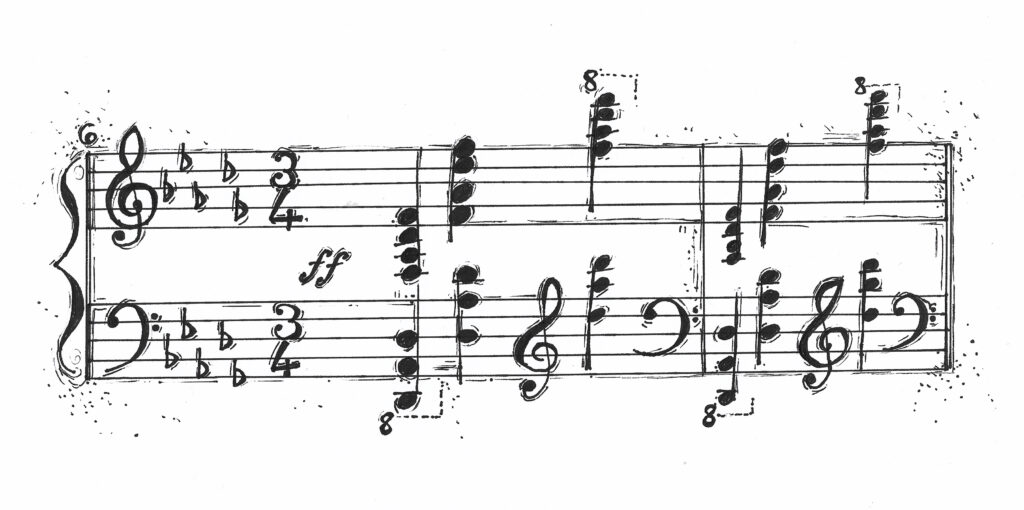
The Glass Delusion
I’m thrilled to have some new writing published in Needle Magazine, alongside some amazing poetry, prose poems and experimental pieces. My flash fiction piece is called ‘The Glass Delusion’ and tells story of the Russian composer, Pyotr Ilyich Tchaikovsky, who was afflicted by a psychological illness known as ‘The Glass Delusion’, which caused him acute stage fright on the opening night of his opera, The Enchantress, at the Mariinsky Theatre, in Saint Petersburg, 1887. This is part of a larger project charting the early history of mental health diagnosis and drawing on names of ailments perhaps more notable for their poetry than for their accuracy. You can find the piece below.
The Glass Delusion
If he must conduct, he will grip his chin with both hands, or his head cracks at the neck and bangs down ponderously, a giant marble. He pictures it rolling along the stage, dimpled green glass, a ribbon of colour inside. Koi Carp. Black & gold. His shoulders shatter next. Wine bottle slopes shear off jaggedly. Back and chest cleave neatly in two, leaving his translucent glass heart pulsing in its crystal pericardium. Left and right ventricle finely turned as champagne flutes. Superior vena cava like the neck of a beer bottle tipped in a drunkard’s mouth. Belly, legs, feet, explode into fine glass dust that must be swept up by the janitor immediately, so that the members of the orchestra don’t hurt their feet on it.
It’s December in St Petersburg. The Winter Palace is a crème de menthe fancy on the frozen banks of the Neva. Lovers skate on it; women in ermines float by like swans. Doctor Stepanov plods through the snow in white Valenki, arrives red-nosed to tell his old friend, Pyotr Ilyich Tchaikovsky, that it is an illness of the mind, named The Glass Delusion. Stepanov presses the cold metal disc of a stethoscope to Tchaikovsky’s ribcage and mumbles on about recorded cases. A ‘Glass Man’ in a Paris asylum. A woman who believes herself a potsherd at a madhouse in Merenberg. King Charles VI of France was the first known sufferer, Doctor Stepanov says. Oh, it wouldn’t do to be a glass king! To calm yourself onstage, picture the poor king, whydon’tyou, commanding his clothing be buttressed with rods of iron. No courtier, nor even Queen Isabeau of Bavaria, was permitted near him, lest he shatter. Two centuries later, the alchemist Johann Joachim Becher wrote in the Physica Subterranea that he had pioneered a way of turning the dead into glass. Imagine. An army of wine glass soldiers fighting with stalactite spindles of swords.
It makes Tchaikovsky think of a glass blower he saw working once, the white heat of the glory hole chafing cheeks that puffed the tip of a metal zhaleika. An alchemist like that might mend him better than Doctor Stepanov with his chalk pills and his stories. Melt him down. Bubble him up. Shaping a smooth circle head from hot orange glass on a block, blasting his hips and shoulders with a torch to make new arms, legs, fingers, toes out of lampwork. Yokes to steady the work, like the music stands of the orchestra. Have you noticed how musical notes are goblets and lustres, epergnes, custard cups, jelly glasses, penny licks, rummers and vases? When I lick my fingertip, I can summon a different note from each, like so –

Red cheeked oboist, tempering this song in his annealer to stop it shattering. Tchaikovsky song. One that will not break. His baton rises, pours a string of molten glass into the broad-throated coupes of the orchestra, and they begin.

